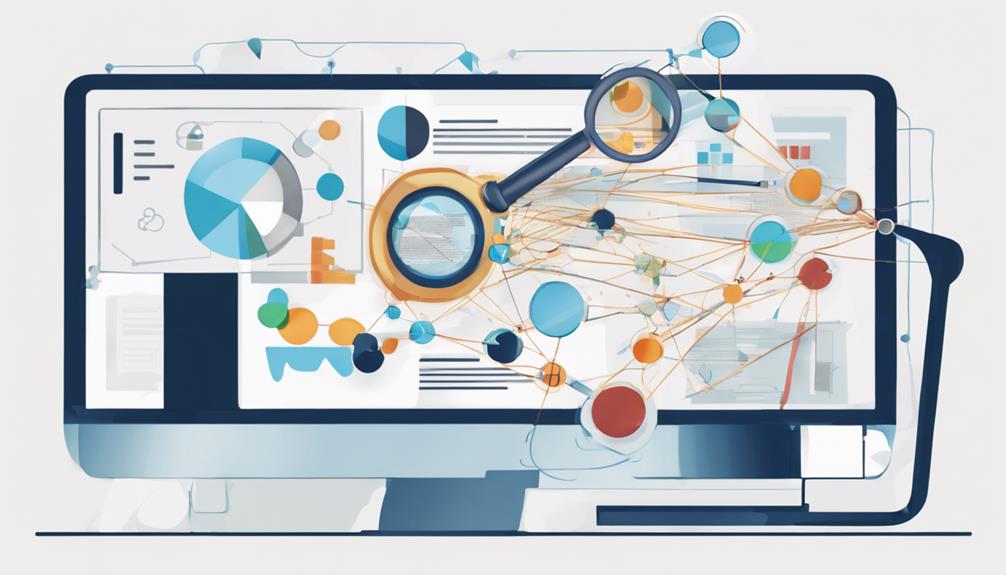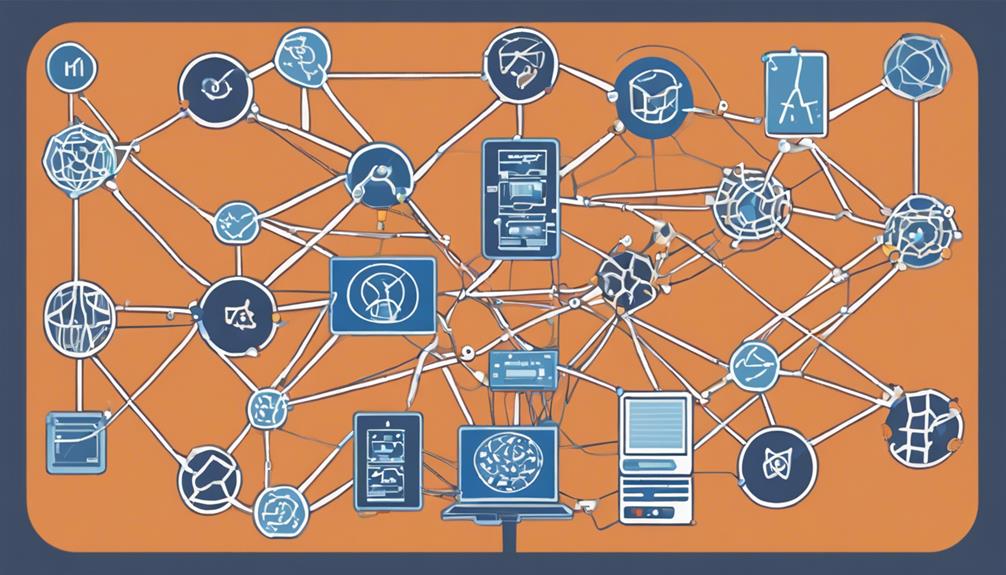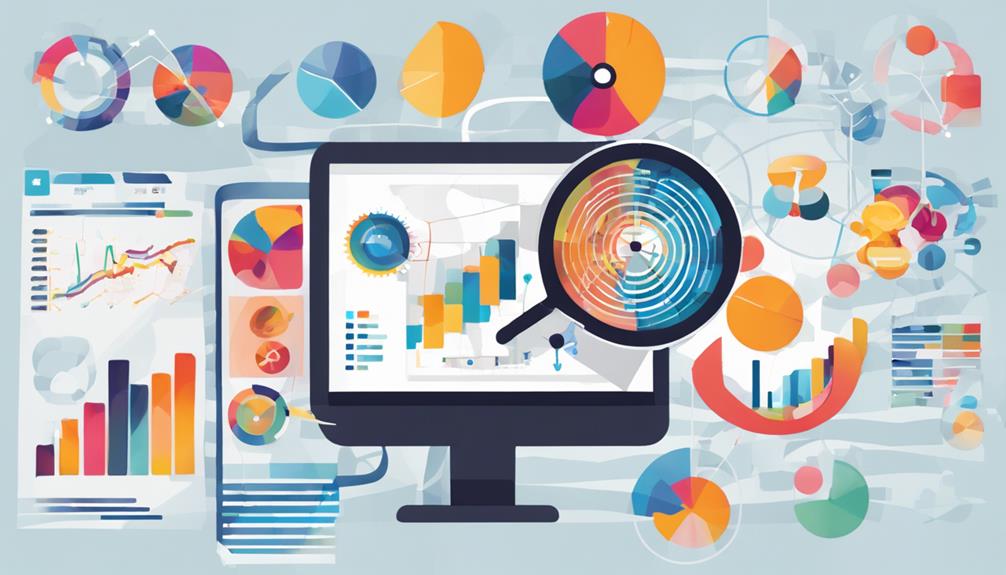When it comes to venturing into the realm of web data mining, imagine yourself as a curious explorer stepping into a vast digital landscape filled with hidden treasures waiting to be unearthed. The journey begins with mastering the foundational principles of data preprocessing and visualization, but the real excitement lies in the practical application of these concepts. As you navigate through the intricacies of data extraction tools and embark on hands-on projects, a world of insights and opportunities will unfold before you, paving the way for a rewarding exploration of the data mining domain.
Basic Knowledge for Web Data Mining
To begin your journey into web data mining, it is essential to grasp the basic knowledge required for this intricate process. Two key components in this domain are data preprocessing techniques and data visualization methods. Data preprocessing techniques involve cleaning, transforming, and organizing raw data to prepare it for analysis. This step is crucial as it ensures the data is accurate and in a format that can be effectively utilized for mining purposes.
On the other hand, data visualization methods play a vital role in understanding the patterns and relationships within the data. Visual representations such as charts, graphs, and plots help in identifying trends, outliers, and correlations that may not be apparent from the raw data alone. Effective visualization can simplify complex information, making it easier to interpret and derive insights.
Mastering these fundamental aspects of data preprocessing and visualization will lay a solid foundation for your web data mining endeavors, enabling you to extract meaningful insights and make informed decisions based on your analysis.
Required Skills for Data Mining
Having acquired a foundational understanding of data preprocessing and visualization techniques in the realm of web data mining, the next step is to delve into the requisite skills for effective data mining. Data analysis skills are essential for interpreting and deriving insights from large datasets obtained through web scraping. Proficiency in data analysis enables you to identify patterns, trends, and anomalies within the data, facilitating informed decision-making.
Machine learning plays a crucial role in web data mining by allowing you to create predictive models and automate the process of extracting valuable information from web sources. Understanding machine learning algorithms, such as clustering, classification, and regression, empowers you to build models that can predict user behaviors, optimize marketing strategies, or detect fraudulent activities on the web.
Suitable Tools for Data Extraction
Efficient data extraction is a pivotal aspect of web data mining, as it lays the foundation for acquiring and processing data from diverse online sources. When considering suitable tools for data extraction, web scraping tools play a crucial role in automating the process of collecting information from websites. These tools enable you to extract data swiftly and accurately, saving time and effort in the data mining workflow.
Data extraction techniques encompass various methods such as parsing HTML/XML documents, using APIs, and employing web scraping tools like BeautifulSoup, Scrapy, or Octoparse. BeautifulSoup, a Python library, facilitates parsing HTML and XML files to extract the required data elements. Scrapy, another Python framework, provides a more robust way to extract data from websites at scale. Octoparse offers a user-friendly interface for both beginners and advanced users to extract data without coding.
Practical Projects for Beginners
For beginners looking to delve into web data mining, embarking on practical projects can serve as a valuable hands-on learning experience. Here are some project ideas and beginner resources to kickstart your journey:
- Project Ideas:
- Scraping data from a simple website to extract information like product prices or weather forecasts.
- Analyzing social media trends by collecting and analyzing data from platforms like Twitter or Reddit.
- Building a basic recommendation system by mining user preferences from online reviews or ratings.
- Creating a sentiment analysis tool to classify text data as positive, negative, or neutral.
- Beginner Resources:
- Utilize web scraping tools like BeautifulSoup or Scrapy for extracting data from websites.
- Learn basic programming languages such as Python or R for data manipulation and analysis.
- Explore online tutorials and forums like DataCamp or Kaggle for guidance and support.
- Practice on open datasets available on platforms like UCI Machine Learning Repository to hone your skills.
Online Courses for Skill Development
Consider enrolling in online courses to enhance your data mining skills effectively. Before choosing a course, conduct a skill assessment to determine your current proficiency level. Various learning resources are available to help you develop these skills, such as Coursera, Udemy, or edX. These platforms offer a wide range of courses tailored to different skill levels, from beginner to advanced.
When selecting a course, look for ones that cover topics such as data preprocessing, data analysis, machine learning, and data visualization. Make sure the course curriculum aligns with your learning objectives and provides hands-on practice opportunities. Additionally, consider courses that offer certifications upon completion to showcase your expertise to potential employers.
Online courses provide flexibility in terms of pacing and accessibility, allowing you to learn at your own convenience. Take advantage of discussion forums and instructor support to clarify any doubts and interact with fellow learners. By investing time and effort in online courses for skill development, you can significantly boost your data mining capabilities and advance your career in this field.
Frequently Asked Questions
How Can I Ensure the Legality and Ethicality of the Data I Mine?
To ensure data legality and ethicality, scrutinize sources for accuracy, respect privacy concerns, adhere to ethical guidelines, and avoid copyright issues. It’s like guiding a ship through a narrow channel – stay vigilant.
What Are Common Challenges Faced During Web Data Mining?
When web data mining, you may encounter challenges like data quality issues causing bias, privacy concerns, and navigating regulations. Ensuring accuracy, addressing privacy, and complying with laws are crucial for successful mining.
Is It Necessary to Have a Background in Programming for Data Mining?
Having programming skills is advantageous for data mining. Understanding coding languages like Python or R can enhance data analysis efficiency. Additionally, familiarity with data ethics is crucial for responsible data handling and decision-making. Start honing these skills today.
How Can I Effectively Manage and Store the Data Collected?
To effectively manage and store data collected, consider using data storage solutions like cloud storage or databases. Implement data management techniques such as data cleaning, normalization, and indexing to ensure efficient organization and retrieval of information.
Are There Any Specific Techniques for Cleaning and Preprocessing Web Data?
To clean and preprocess web data effectively, utilize techniques like data normalization and outlier detection. These methods help standardize data values and identify anomalies for improved analysis accuracy. Implementing such strategies enhances overall data quality and insights.



